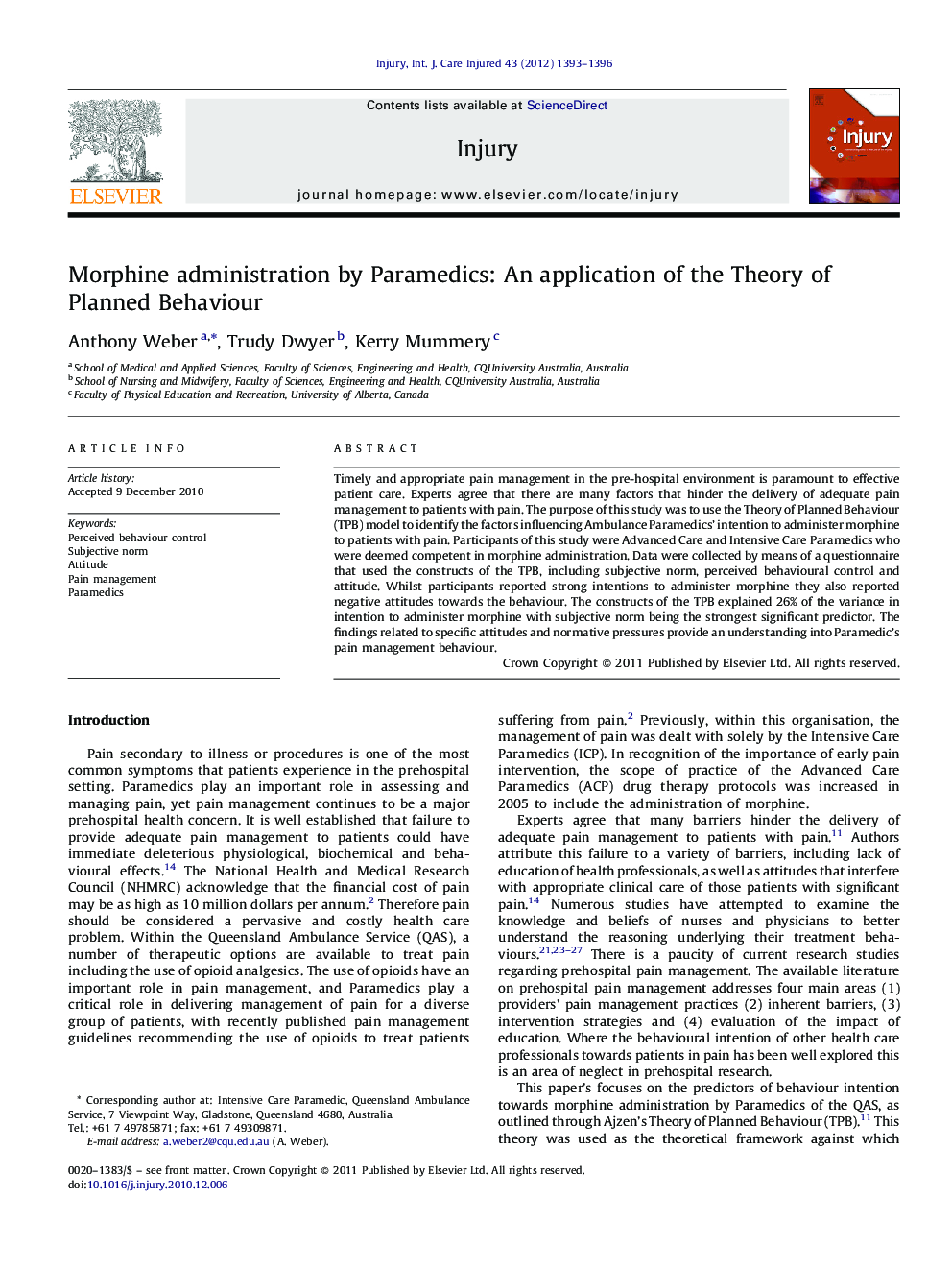| Article ID | Journal | Published Year | Pages | File Type |
|---|---|---|---|---|
| 6084448 | Injury | 2012 | 4 Pages |
Timely and appropriate pain management in the pre-hospital environment is paramount to effective patient care. Experts agree that there are many factors that hinder the delivery of adequate pain management to patients with pain. The purpose of this study was to use the Theory of Planned Behaviour (TPB) model to identify the factors influencing Ambulance Paramedics' intention to administer morphine to patients with pain. Participants of this study were Advanced Care and Intensive Care Paramedics who were deemed competent in morphine administration. Data were collected by means of a questionnaire that used the constructs of the TPB, including subjective norm, perceived behavioural control and attitude. Whilst participants reported strong intentions to administer morphine they also reported negative attitudes towards the behaviour. The constructs of the TPB explained 26% of the variance in intention to administer morphine with subjective norm being the strongest significant predictor. The findings related to specific attitudes and normative pressures provide an understanding into Paramedic's pain management behaviour.
